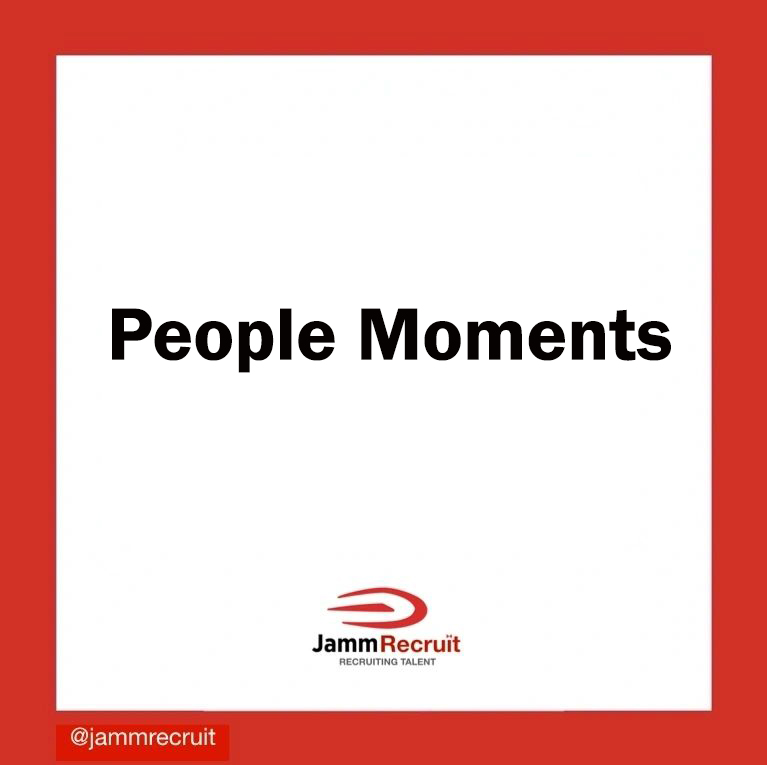
People Moments
In May 2021, during an interview with Bloomberg Businessweek, Anthony Klotz, an Associate Professor of Management at Texas A&M University, predicted and coined the phenomenon of ‘The Great Resignation’ – a significant rise in voluntary resignations (in the United States). (Bloomberg)
Associate Professor Klotz in a further interview with NBC attributes the Great Resignation to the following: The pandemic has made many people realize their job does not contribute enough (or at all) to their pursuit for happiness and meaning, and they have decided to invest their energy elsewhere — in new jobs, new careers or in other aspects of their lives. (NBC News)
Roll forward nearly a year and now we are reading about “The Great Regret,” (The Guardian), which shares the following: “That theory has been given credence by another study released this week by the job search site The Muse. Its study of more than 2,500 workers found that almost three-quarters of them (72%) experienced either “surprise or regret” that the new position or new company they quit their job for turned out to be “very different” from what they were led to believe.”
The new job, if it was an existing position, may well have been vacated by a ‘disenchanted someone’. The Great Regret suggests swapping bad for same, or worse, has occurred for many that have taken the leap.
The English punk rock band The Clash said it perfectly in their 1982 album, Combat Rock, “Should I stay or Should I go Now?”
I am one of those that did go in 2021 and thankfully have no regrets. What my own resignation journey has taught me is to consider what I refer to as ‘People Moments’.
In the in the January–February 1999 issue of Harvard Business Review, Edward Howell wrote an article titled “The Human Moment at Work,” an authentic psychological encounter that can happen only when two people share the same physical space. The human moment has two prerequisites: People’s physical presence and their emotional and intellectual attention. That’s it.
This article was written in 1999, in a pre-Covid work from the office, business as usual world, reflected by the references of people sharing the same physical space. This article indicates to me that the seeds of “The Great Resignation” were already in place, waiting for the right conditions to germinate.
For our current, evolving VUCA (volatile, uncertain, complex and uncertain) workplaces and world, I contend the concept of People Moments can add value to individuals, teams and organisations, and shore up resolve to stay creative, positive, and maintain sustainable high performance.
People Moments are simple – the beginning of the working week sees many workplaces holding a beginning of the week team/department meeting to discuss the previous week, and the week to come. Depending on your industry or corporate values, you may start the meeting with a ‘Safety Moment’ to instil and reinforce positive safety behaviours and choices.
Some organisations may have ‘Financial Moments’ whereby they instil and reinforce positive and responsible financial behaviour – think before printing, carpooling (social distancing rules apply now in some organisations) etc.
I suggest that we also start each (weekly) meeting with a ‘People Moment’? Let’s recognise the diversity (I refer to diversity as being the beautiful uniqueness) of our teams and the value that each person may bring to the table.
Let’s identify an act of kindness, creativity, innovation, accountability, inclusion to start the week and set the emotional and behavioural tone for ourselves, our teams, and our companies.
Done respectfully and meaningfully, People Moments allow for positive reflection and recognition of individual and team efforts leading to a much stronger sense of connectedness, community and enhanced collaboration. That must be a good thing, right?
Yes, let’s close performance gaps, and yes, let’s gain knowledge from lessons-learned, but please, take the time to focus on the positive and diverse contributions each of us make every day within our personal and professional lives.
Just a thought!
Associate Professor Danny Simms